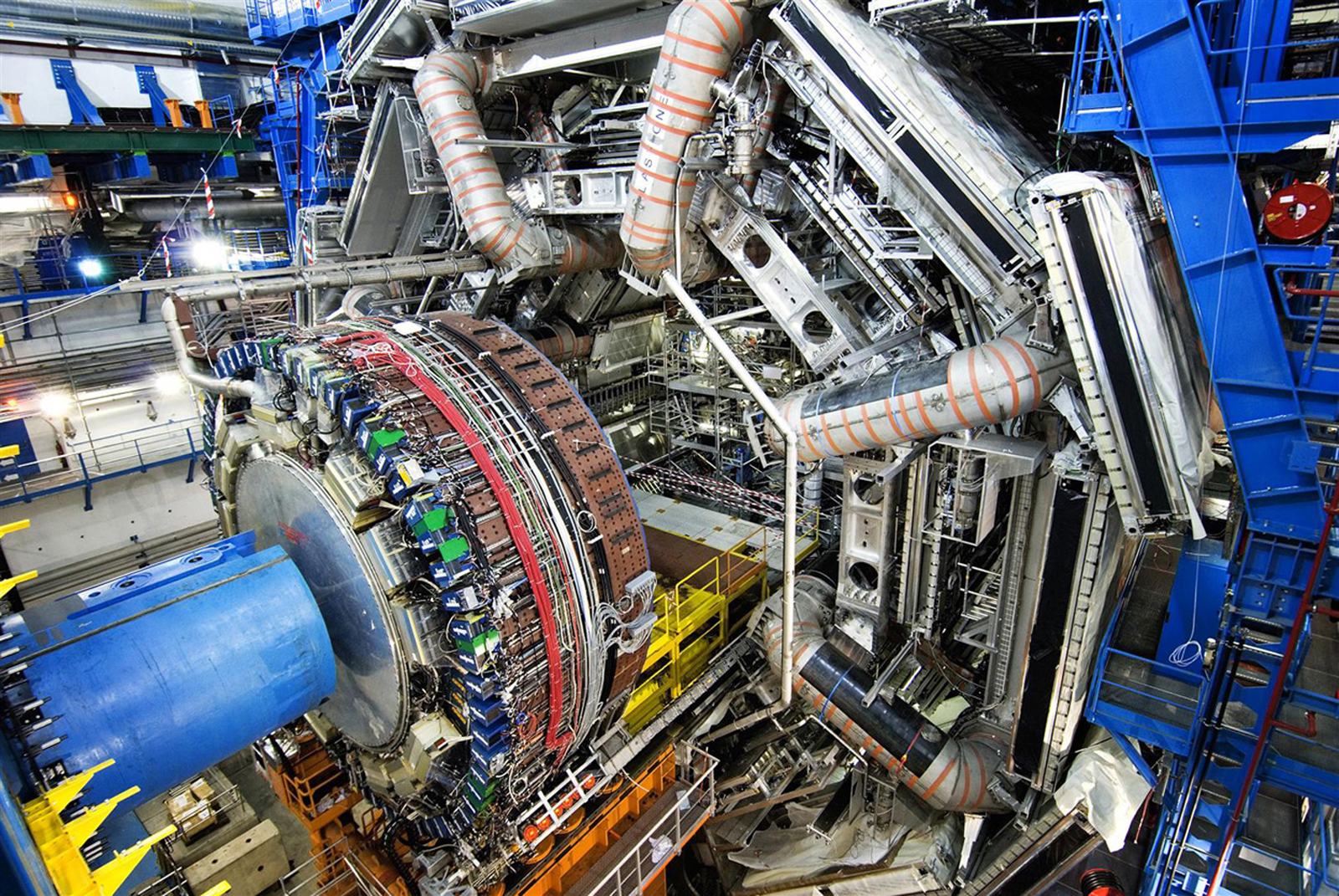Achegándonos ao LHC
O Departamento de Enxeñería (EN) proporciona ao CERN as competencias de enxeñería, sistemas de infraestrutura e coordinación técnica necesarias para as fases de deseño, instalación, funcionamento, mantemento e desmantelamento do complexo de aceleradores do CERN e as súas instalacións experimentais. A actividade do Departamento de Enxeñería desenvólvese nas áreas que se indican adeseguido.
Grupo de Acceso e Alarmas (AA)
O grupo de Acceso e Alarmas (AA) encárgase do deseño, enxeñería, instalación, mantemento, operación e renovación dos sistemas que garanten a Seguridade do Persoal do CERN, Usuarios e Visitantes, en todos os emprazamentos do CERN, Aceleradores e Instalacións de Experimentos.
Grupo de Coordinación e Enxeñería de Aceleradores (ACE)
O grupo de Coordinación e Enxeñería do Acelerador (ACE) encárgase da coordinación das actividades para as intervencións e cambios no LHC e os seus inxectores.
Grupo de Arrefriado e Ventilación (CV)
O grupo de Arrefriado e Ventilación (CV) é responsable do deseño, instalación, posta en marcha, operación e mantemento dos sistemas de arrefriado, estacións de bombeo, plantas de aire acondicionado e sistemas de distribución de fluídos para todo o complexo de aceleradores do CERN, as súas áreas experimentais e algúns dos sistemas especiais de arrefriado dos subdetectores dos experimentos do LHC, así como para instalacións técnicas estratéxicas como o Centro de Computación.
Grupo de Enxeñería Eléctrica (EL)
O CERN desenvolveu a súa propia rede de transmisión e distribución eléctrica, xa que a cantidade de enerxía eléctrica necesaria para o funcionamento dos seus aceleradores e experimentos é considerable e merece unha xestión adecuada. Nos picos de consumo, o CERN utiliza uns 200 megawatts de potencia, o que equivale aproximadamente a un terzo da cantidade de enerxía utilizada para alimentar a próxima cidade de Xenebra, en Suíza.
Grupo de Enxeñería de Manipulación (HEI)
Desde enormes pezas de equipo con formas pouco convencionais ata pezas de detectores extremadamente delicadas, a manipulación e o transporte coidadosos dos compoñentes son esenciais no CERN. O Grupo de Enxeñería de Manipulación (HEI) prepara, organiza e coordina todas as operacións de transporte e manipulación para os aceleradores e experimentos do CERN, así como o transporte de miles de artigos convencionais e produtos químicos e radioactivos ao ano.
Xestión da información (IM)
O grupo proporciona aplicacións e apoio para a xestión da información de enxeñería en toda a Organización e os seus diferentes proxectos. O grupo axuda a implantar e configurar as ferramentas en función das necesidades dos usuarios, á vez que garante a aplicación de procesos coherentes e salvagárdaa do fío dixital dos datos de enxeñería. Un obxectivo xeral é proporcionar rastrexabilidade dos datos para os ciclos de vida completos do noso complexo de aceleradores e instalacións técnicas, así como as súas capacidades relacionadas de xestión de cambios.
Aínda que as aplicacións de enxeñería proporcionadas baséanse principalmente en produtos industriais estándar, o grupo tamén desenvolve interfaces e ferramentas a medida para tarefas e procesos específicos.
Grupo de Enxeñería Mecánica e de Materiais (MME)
O grupo inclúe a maior oficina de deseño do CERN que utiliza programas de deseño asistido por computador (CAD).
A unidade realiza cálculos avanzados, análises e simulacións numéricas para avaliar e mellorar o comportamento dos compoñentes nas condicións extremas das máquinas do CERN.
O grupo conta con instalacións internas de taller con equipos de última xeración e unha unidade de subcontratación que traballa en estreita colaboración con industrias europeas.
O grupo inclúe competencias e instalacións de materiais e ensaios non destrutivos para o desenvolvemento, selección, caracterización, control de calidade e análise de materiais como metais e as súas aliaxes, cerámicas ou películas finas, incluídos exames destrutivos, non destrutivos e dimensionales de materiais e compoñentes.
O grupo tamén realiza medicións dinámicas e estáticas a temperatura ambiente e criogénica, ensaios de materiais, caracterización metalúrxica e análise mediante microscopía óptica, microscopía electrónica e microscopía electrónica de fai de ións de enfoque, análise de imaxes, ensaios mecánicos, tomografía computarizada de raios X e análises de fallos.
Grupo de Planificación, Administración e Seguridade (PAS)
O grupo é responsable de apoiar ao Xefe de Departamento na xestión e planificación dos recursos materiais e de persoal do departamento, así como de todos os asuntos relacionados coa seguridade e o medio ambiente. Representa ao departamento nos órganos do CERN ou interdepartamentales que se ocupan de cuestións administrativas, de persoal, orzamentarias e de seguridade. Tamén define e aplica os procedementos administrativos e de seguridade, tanto para o persoal como para o material do Departamento.
|
AUTORES Xabier Cid Vidal, Doctor en Física de Partículas (experimental) pola Universidad de Santiago (USC). Research Fellow in experimental Particle Physics no CERN, desde xaneiro de 2013 a decembroe de 2015. Estivo vencellado ao Depto de Física de Partículas da USC como becario "Juan de la Cierva", "Ramon y Cajal" (Spanish Postdoctoral Senior Grants), e Profesor Contratado Doutor. Desde 2023 é Profesor Titular de Universidade nese Departamento (ORCID). Ramon Cid Manzano, foi catedrático de Fïsica e Química no IES de SAR (Santiago - España), e Profesor Asociado no Departamento de Didáctica de Ciencias Experimentais da Facultade de Educación da Universidad de Santiago (España), ata o seu retiro en 2020. É licenciado en Física, licenciado en Química, e Doutor pola Universidad de Santiago (USC).(ORCID). |
CERN CERN Experimental Physics Department CERN and the Environment |
LHC |
NOTA IMPORTANTE
Toda a Bibliografía que foi consultada para esta Sección está indicada na Sección de Referencias
© Xabier Cid Vidal & Ramon Cid - rcid@lhc-closer.es | SANTIAGO |




